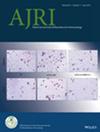Knockdown of TRIM47 Overcomes Paclitaxel Resistance in Ovarian Cancer by Suppressing the TGF-β Pathway via PPM1A
Abstract
Objective
We investigated the role of tripartite motif 47 (TRIM47) in paclitaxel resistance in ovarian cancer, focusing on its regulation of protein phosphatase magnesium-dependent 1A (PPM1A), transforming growth factor-β (TGF-β) pathway activation, and methyltransferase-like 3 (METTL3)-mediated N6-methyladenosine (m6A) modification.
Methods
Bioinformatics analysis using Gene Expression Profiling Interactive Analysis (GEPIA), Kaplan–Meier plotter (KM plot), Linkedomics, and sequence-based RNA adenosine methylation site predictor (SRAMP) databases identified TRIM47 and PPM1A expression patterns, prognostic significance, co-expression networks, and m6A modification sites. Paclitaxel-resistant ovarian cancer cell lines were generated. Quantitative reverse transcriptase polymerase chain reaction (qRT-PCR) and western blot analyzed gene and protein expression. Co-immunoprecipitation (Co-IP) and GST pull-down assays assessed TRIM47-PPM1A interaction, while cycloheximide (CHX) chase, and IP assays examined PPM1A stability and ubiquitination. RNA immunoprecipitation (RIP) and dual-luciferase assays determined METTL3’s effect on TRIM47 m6A modification. Functional assays (3-(4,5-dimethylthiazol-2-yl)-2,5-diphenyltetrazolium bromide (MTT), colony formation, and flow cytometry) evaluated proliferation, apoptosis, and drug response. An in vivo xenograft model confirmed TRIM47’s role in chemoresistance.
Results
Bioinformatics analysis showed that TRIM47 was overexpressed in ovarian cancer and negatively correlated with the expression of PPM1A. Kaplan–Meier analysis showed that high TRIM47 and low PPM1A expression were correlated with poor prognosis. TRIM47 was upregulated in paclitaxel-resistant ovarian cancer cells. The knockdown of TRIM47 restored drug sensitivity, inhibited cell proliferation, and induced cell apoptosis. Mechanistically, TRIM47 functioned as an E3 ubiquitin ligase, targeting PPM1A for degradation, leading to sustained TGF-β signaling and enhanced chemoresistance. CHX chase assays demonstrated reduced PPM1A stability in the presence of TRIM47, while IP-WB confirmed increased PPM1A ubiquitination. METTL3-mediated m6A modification enhanced TRIM47 mRNA stability, further promoting its oncogenic role. In vivo, TRIM47 knockdown reduced tumor growth and improved paclitaxel efficacy, reinforcing its role in resistance.
Conclusion
TRIM47 promoted paclitaxel resistance in ovarian cancer by inducing PPM1A degradation and activating the TGF-β pathway.

 求助内容:
求助内容: 应助结果提醒方式:
应助结果提醒方式:


